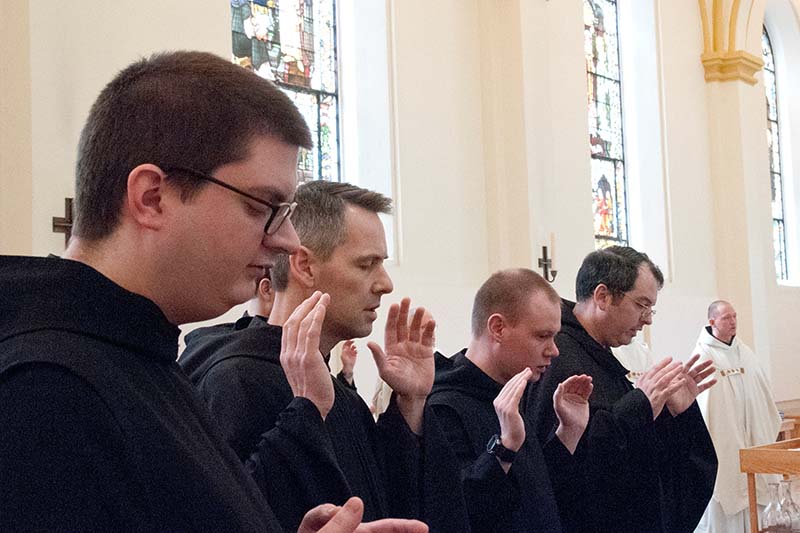Culpa
Br. John Mark Falkenhain, OSB
Thursday, January 28, 2021

Every once in a while, the distinctiveness of the monastic life really hits me. Where else but in a Benedictine monastery might you find a group of 50 or 60 men gathered in a room at 3:00 on an ordinary Wednesday afternoon to apologize to one another for their annoyances, their mistakes and their offenses against one another?
Regularly throughout the year, our monastic community gathers for what are called culpa services. The proceedings are simple: an opening antiphon with verse (sung), an opening prayer, a brief reading from the Rule, a short reflection by one of the confreres, then the reason for being there - the saying of "culpa."
One by one, beginning with the abbot, we monks use a simple formula to acknowledge and ask pardon for our sins against community life. "For my impatience with my confreres and my poor example to the juniors, I ask you to pray for me. Lord, have mercy." (The community responds: "Lord, have mercy.")
"For my judgmental attitude..."; "For breaking day silence…"; "For my misuse of lectio time…"; "For gossiping and murmuring..."; "For my arriving late to meals and Office…" Lord, have mercy. Lord, have mercy. Lord, have mercy.
After everyone has taken his turn, the abbot concludes the assembly with a short prayer, a blessing and the dismissal. We depart and then go about the rest of our day, trying not to make the same mistakes, trying to get it right.
This stopping to take responsibility, to apologize and pray for mercy, is really at the heart of the Christian life and the monastic vocation: conversion. And we ask for what we really need: support and accountability from our confreres in order to change those things that keep us from being saints.
Culpa services increase patience and mercy in community life. Fr. Harry likes to say that one of the best things about culpa is hearing one another and then being able to say to ourselves: "Well, at least he knows he grumbles and he's working on it!"
It might take only 30 minutes, but culpa is one of the many little, but significant, details that distinguishes our monastic life and points us in the direction of what we came to pursue: the work of becoming each day a better, more Christ-like person.
I love culpa services. I love this life. It just makes sense.